The Overlooked Power of Water in Weight Loss: Why Hydration Deserves More Attention
Water is often overshadowed in conversations about weight loss by more dramatic approaches—high-protein diets, calorie tracking apps, high-intensity interval training, and intermittent fasting regimens. Yet, beneath the surface of these complex strategies lies a surprisingly simple yet scientifically supported tool: hydration. For decades, researchers and nutrition experts have explored the connection between water and weight regulation, uncovering compelling evidence that water plays a crucial role not just in maintaining metabolic function, but in actively supporting weight loss efforts.
You may also like: Expert-Backed Weight Loss Tips for a Healthier Lifestyle: What You Need to Know for Long-Term Weight Control and Wellness
Understanding how much water to drink for weight loss involves more than applying a generic “8 glasses a day” rule. The optimal water intake for weight loss varies based on age, weight, activity level, diet, and climate. Furthermore, the mechanisms by which water supports fat metabolism, hunger regulation, and thermogenesis are far more intricate than most people realize. Whether you’re wondering “can I lose weight by drinking water” or seeking a practical “water drink hack to lose weight,” this comprehensive, evidence-based article will guide you through the expert-backed insights, real-world applications, and emerging science behind the role of hydration in fat loss.
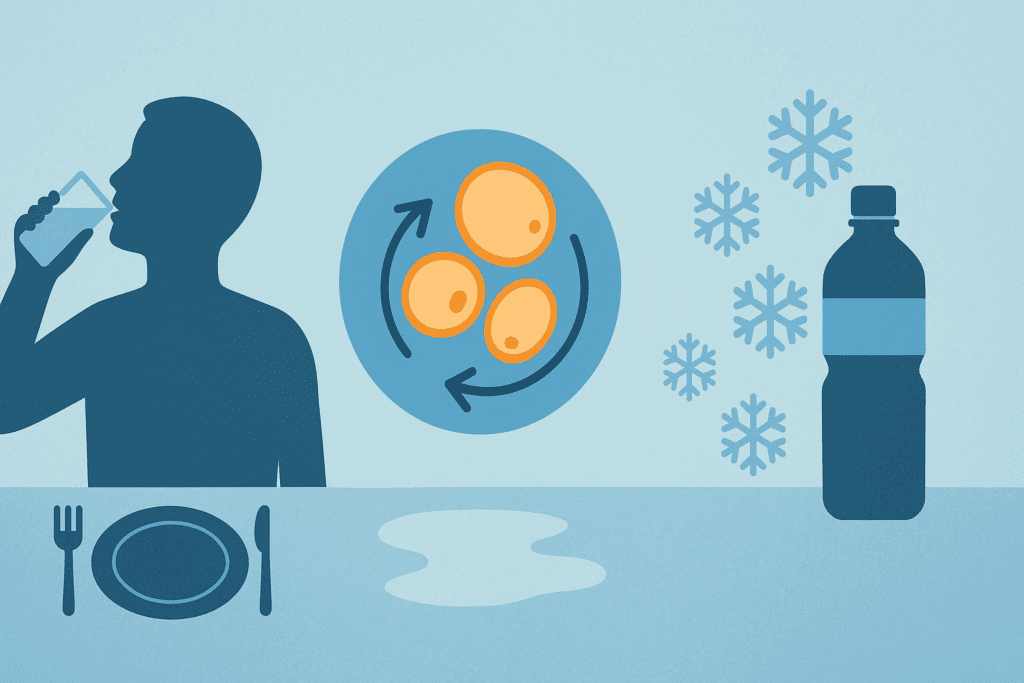
Does Drinking Water Help You Lose Weight? Unpacking the Science
The question “does drinking water help you lose weight?” is not only common—it’s increasingly validated by empirical research. The answer lies in understanding the multiple biological pathways through which water interacts with metabolism, hunger, and energy expenditure. First, drinking water before meals can significantly reduce calorie intake by promoting a sensation of fullness. Clinical trials have shown that consuming 500 mL of water about 30 minutes before eating can lead to fewer calories consumed during meals, particularly among older adults and those with overweight or obesity.
Second, water is essential for lipolysis—the metabolic breakdown of fat. The process of hydrolysis, which breaks down stored triglycerides into usable fatty acids and glycerol, requires water. Therefore, insufficient hydration can slow this fundamental fat-burning mechanism. This link between water and weight loss is not just theoretical; it is biologically necessary. Third, cold water consumption may promote a modest thermogenic effect, temporarily increasing calorie expenditure as the body works to warm the ingested fluid. While this effect alone is not significant enough to drive dramatic fat loss, it contributes to the cumulative benefits of increased hydration.
In examining whether water consumption helps lose weight, one must also consider its indirect benefits. Proper hydration supports energy levels, cognitive function, and exercise performance—all critical factors in sustaining a consistent workout routine and making healthy dietary decisions. So while drinking water alone is not a magic bullet, it plays a foundational and irreplaceable role in a comprehensive fat-loss strategy.
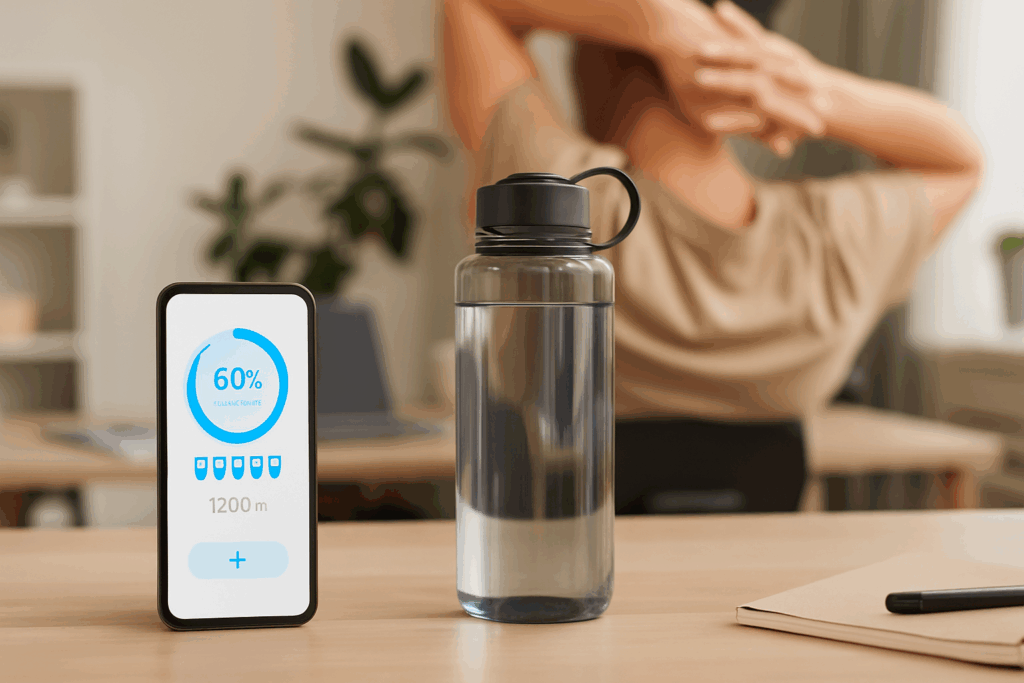
How Much Water Should I Drink to Lose Weight? Expert Recommendations
When it comes to answering the question “how much water should I drink to lose weight,” context is everything. There is no one-size-fits-all answer, but several guidelines provide a helpful starting point. The National Academies of Sciences recommends approximately 3.7 liters (125 ounces) per day for men and 2.7 liters (91 ounces) for women from all sources, including food. However, those actively pursuing weight loss may require slightly more, particularly if they engage in regular exercise or follow a high-protein diet, which increases the need for fluids due to urea excretion.
Experts typically advise spacing water intake evenly throughout the day, with particular emphasis on strategic timing—such as drinking water before meals and during physical activity. Using thirst as your only indicator of hydration may be misleading, as mild dehydration can set in before one becomes consciously thirsty. A practical way to calculate how much water to drink for fat loss is to aim for half your body weight in ounces. For example, a 180-pound individual might target around 90 ounces of water daily.
It’s also important to factor in environmental conditions. Hot or dry climates increase sweat loss, raising fluid requirements. Similarly, diuretic consumption—such as caffeine or alcohol—should be balanced with additional water intake. By monitoring urine color (ideally pale yellow) and assessing overall energy and cognitive clarity, individuals can fine-tune their daily water intake to suit their unique physiology and weight-loss goals.
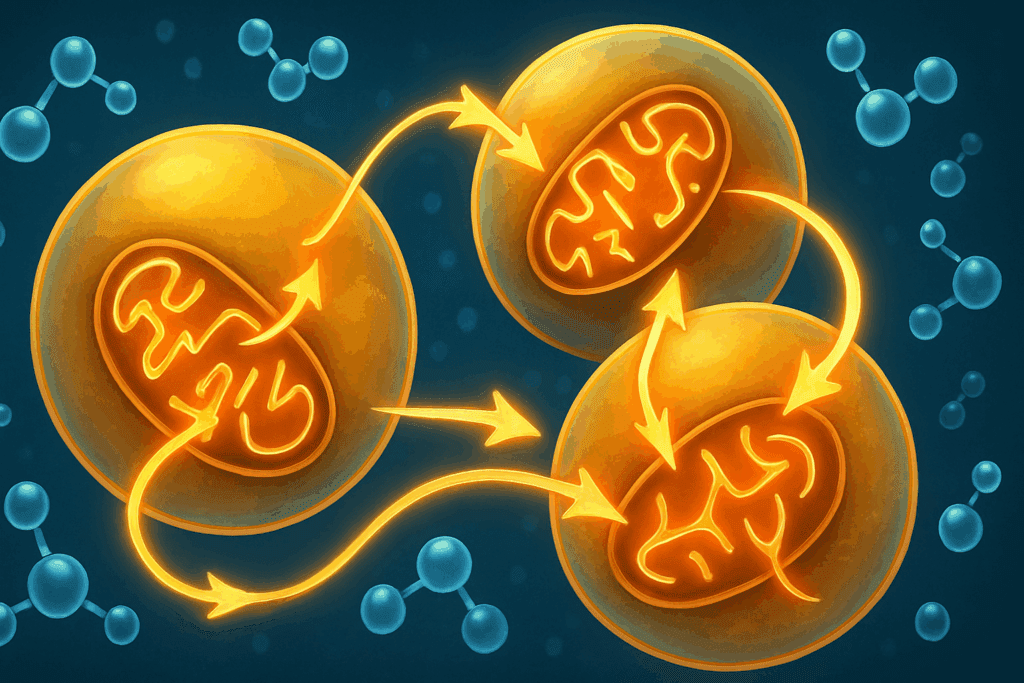
The Physiology of Water and Fat Metabolism: How Does Water Help With Weight Loss?
At a cellular level, water is indispensable for the metabolic processes that support fat oxidation. One of the most overlooked aspects of hydration is its direct involvement in mitochondrial function. Mitochondria—the powerhouse of the cell—require an aqueous environment to efficiently carry out the biochemical reactions that convert stored fat into usable energy. Dehydration compromises this environment, thereby reducing metabolic efficiency.
Moreover, enzymes responsible for lipolysis, such as hormone-sensitive lipase, operate optimally in hydrated tissues. This enzymatic pathway is essential for mobilizing stored fat, particularly during fasting periods or aerobic exercise. Inadequate water consumption impairs this process, leading to a sluggish metabolism and difficulty shedding excess weight. These physiological underpinnings reinforce the claim that water consumption and weight loss are intimately connected.
Water also facilitates the elimination of metabolic waste. When fat is broken down, byproducts such as ketones and urea are produced and must be excreted through urine and sweat. In the absence of sufficient water, this detoxification process is hampered, potentially leading to fatigue and water retention. Thus, if you’re asking “does drinking a lot of water help lose weight,” the answer, grounded in physiology, is yes—particularly when it supports the body’s natural detox and fat-burning functions.
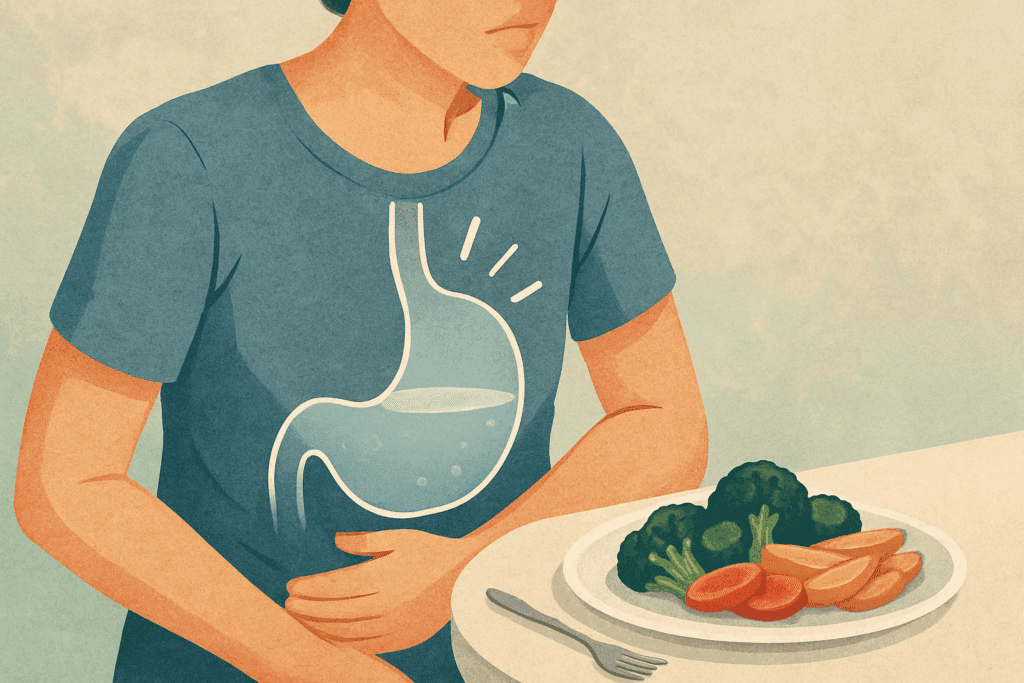
Appetite Regulation and the Satiety Effect of Water
One of the most practical ways water assists with weight management is through its impact on appetite regulation. The human body often mistakes thirst for hunger, especially when hydration levels are suboptimal. This confusion can lead to unnecessary snacking and overconsumption of calories, particularly in sedentary environments. Drinking water before and between meals helps clarify true hunger signals and contributes to the satiety process.
Water adds volume to the stomach without adding calories. When consumed before meals, it stretches the stomach walls, stimulating stretch receptors that signal fullness to the brain. This physiological feedback loop can result in a natural reduction in portion sizes and calorie intake. Research studies consistently support this strategy, particularly among middle-aged and older adults, who may benefit most from this satiety-inducing “water drink hack for weight loss.”
Additionally, water’s effect on gastric emptying and gastrointestinal motility influences satiety. While solid foods tend to slow gastric emptying, drinking water alongside fiber-rich meals can enhance the expansion of soluble fiber, further increasing fullness and improving blood sugar regulation. These synergistic effects demonstrate how drinking water and weight loss are connected not just through metabolism, but through behavioral and hormonal pathways that govern appetite.
Can I Lose Weight by Drinking Water Alone?
The idea that one can shed pounds solely by increasing water intake—without dietary changes or physical activity—is both misleading and reductive. While water supports the biochemical environment for fat metabolism, it cannot override the fundamental energy balance equation: calories in versus calories out. However, asking “can water help you lose weight” is still entirely valid, because while water alone won’t drive significant fat loss, it amplifies the effectiveness of other interventions.
In clinical studies, individuals who combined increased water intake with calorie control lost more weight than those who did not. This suggests that hydration acts as a force multiplier, enhancing the body’s responsiveness to diet and exercise. Furthermore, drinking water may prevent weight regain. By supporting sustained energy levels, improving sleep, and reducing cravings, water plays a quiet but powerful role in long-term weight maintenance.
It’s also worth noting that individuals who replace sugar-sweetened beverages with water see the most dramatic changes. The reduction in caloric intake from cutting out soda, juice, and sweetened teas can total several hundred calories per day. Thus, even if one simply swaps sugary drinks for water without altering any other habits, a modest amount of fat loss can be achieved. In this context, yes—you can lose weight from drinking water when it’s used to displace high-calorie liquids.
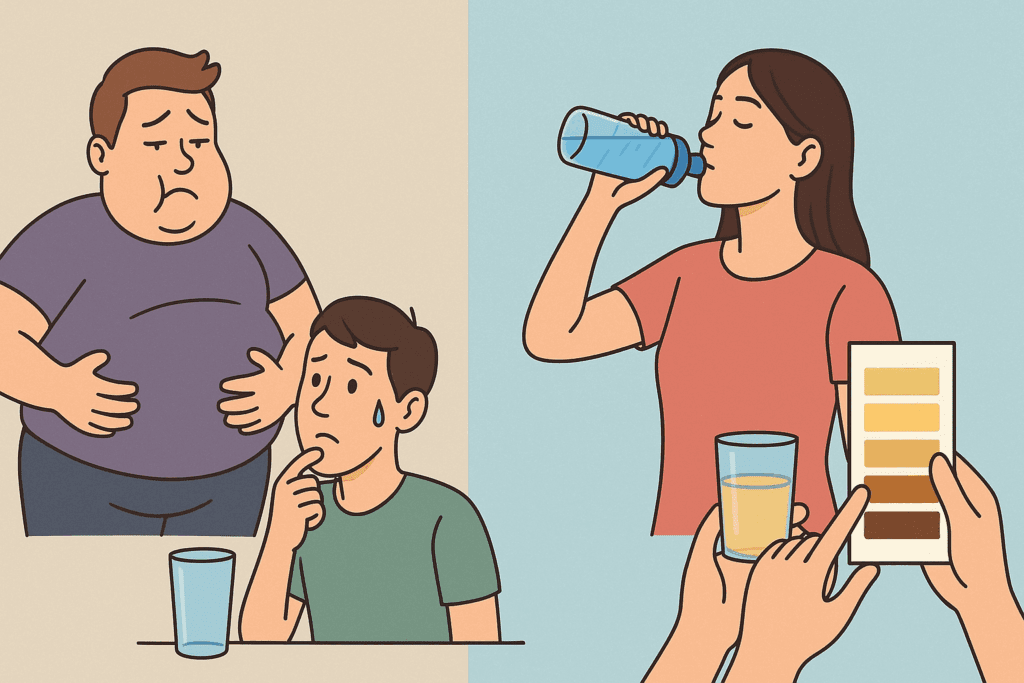
Water Intake for Weight Loss: Debunking Myths and Misconceptions
The internet is awash with conflicting information about hydration. One popular myth is that drinking large volumes of water leads to “water weight gain.” In truth, this refers to short-term fluid retention, often triggered by a high-sodium diet or hormonal fluctuations—not by hydration itself. Consistently drinking water actually helps the kidneys flush excess sodium and stabilize fluid balance over time, which may reduce bloating and puffiness.
Another myth is that “you only need to drink water when you’re thirsty.” This belief can be dangerous, particularly for older adults whose thirst mechanism becomes less reliable with age. Dehydration can occur insidiously and affect not only weight-loss efforts but also cognitive function, blood pressure, and cardiovascular performance. A more effective strategy is to maintain a regular hydration schedule and listen to signs of fatigue, brain fog, or dark-colored urine as indicators of low fluid levels.
Finally, there’s a misconception that more is always better. Excessive water consumption—far beyond what the body needs—can lead to hyponatremia, a rare but serious condition characterized by dangerously low sodium levels. The key is moderation and individualization. When considering how much water to lose weight, it’s not about drowning your system but about restoring optimal balance for metabolic performance and physiological harmony.
Does Water Help in Reducing Weight Fast? Exploring Short-Term and Long-Term Effects
Many people turn to water-based weight loss strategies in hopes of seeing fast results. But does water help in reducing weight quickly? The answer depends on how one defines “fast.” Initial weight loss from increased water intake may reflect the loss of retained fluids and reduced bloating. However, sustained fat loss requires consistent dietary changes and increased physical activity. Water accelerates the process only when integrated into a broader plan.
In short-term detox programs or fasting regimens, water plays a central role in suppressing hunger and maintaining electrolyte balance. While rapid fat loss is generally not advisable due to its association with muscle loss and nutritional deficiencies, water does make these short-term protocols more tolerable and less likely to lead to rebound eating. For those seeking sustainable results, the question is not whether water can produce rapid weight loss, but whether it can sustain healthy habits that support long-term change.
Thus, the weight loss effects of water are both immediate and cumulative. In the short term, it aids appetite control and water weight reduction. Over the long term, it enhances metabolic efficiency, supports exercise performance, and reduces reliance on high-calorie beverages. Will drinking water make you lose weight instantly? No—but will it help you lose weight faster and more effectively in a healthy, sustainable way? Absolutely.
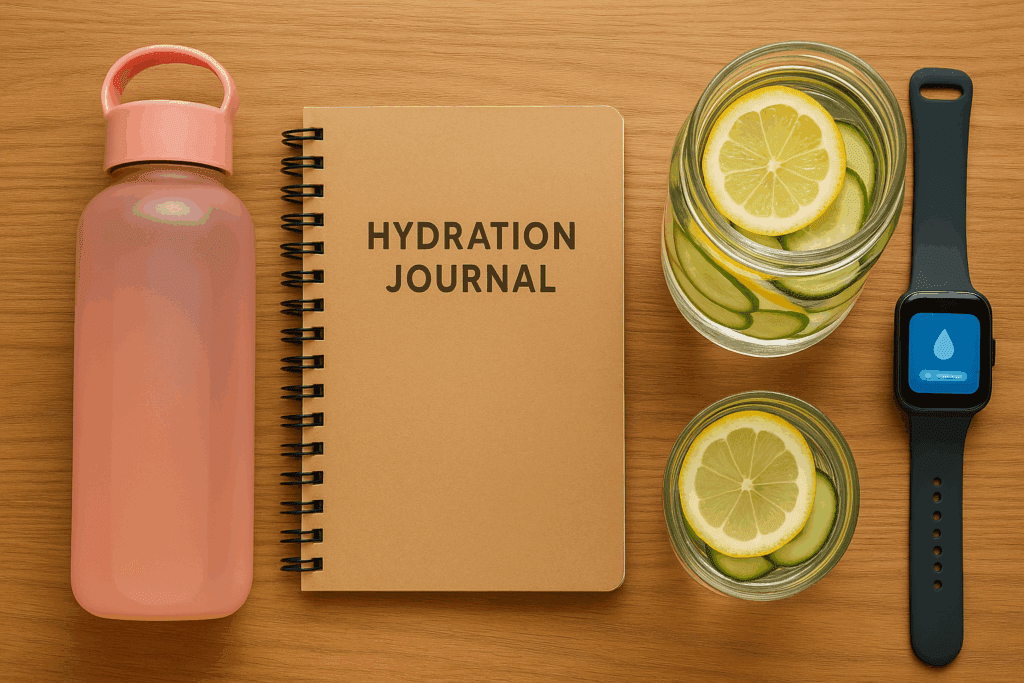
Practical Tips for Using Water to Support Weight Loss Goals
Integrating hydration into a daily weight-loss plan involves more than carrying a water bottle. Strategic timing and behavioral reinforcement are key. Drinking a full glass of water first thing in the morning jumpstarts the metabolism after a night of fasting. Sipping water throughout the day, particularly before meals and snacks, reinforces satiety signals and may help prevent mindless eating.
Flavoring water with natural ingredients like lemon, cucumber, or mint can make it more appealing and support digestive health. For those asking how much water to drink for weight loss in ounces, a good rule of thumb is to aim for 64 to 100 ounces per day, depending on body size and activity level. Keeping a hydration journal or using a water-tracking app can also reinforce habits and provide motivation through measurable progress.
When combined with a balanced diet and regular movement, drinking water becomes more than a health habit—it becomes a catalyst for lifestyle transformation. Whether you’re seeking a water drink hack to lose weight or simply trying to reduce sugar intake, prioritizing hydration can yield noticeable benefits not just for your waistline but for your overall wellness.
Frequently Asked Questions (FAQ): Water and Weight Loss
1. Is it possible to overhydrate while trying to lose weight, and how can I avoid it?
Yes, overhydration—also known as water intoxication or hyponatremia—is a rare but serious condition that can occur if you drink excessive amounts of water in a short period. While staying hydrated supports weight loss, it’s important to balance water intake with electrolyte levels, especially if you’re sweating heavily during workouts or restricting food. When considering how much water to drink for weight loss, it’s better to focus on consistent, moderate intake rather than forcing yourself to drink more than your body needs. If you’re unsure about how much water to lose weight safely, pay attention to your thirst cues, urine color (which should be pale yellow), and feelings of bloating or fatigue, which may indicate you’re overdoing it. While water and weight loss are closely connected, individualized hydration based on activity and body weight is the safest route.
2. Can drinking more water change the way your body processes food during weight loss?
Drinking water before and during meals can subtly influence digestion, nutrient absorption, and even insulin sensitivity. While the main article focused on satiety, another important element is how hydration affects the body’s thermogenic response—the slight increase in calorie burn after eating, known as the thermic effect of food. Proper hydration may enhance this process by ensuring that enzymes and stomach acids function efficiently. This interaction between drinking water and weight loss is especially useful when eating high-fiber or protein-rich meals, which require more digestive effort. Thus, if you’re asking, “how does water help with weight loss,” part of the answer lies in its ability to optimize your digestive efficiency and metabolic response.
3. How does mental clarity from hydration contribute to weight loss efforts?
Many people overlook the role of mental performance in achieving their weight-loss goals. Inadequate water intake can impair focus, increase fatigue, and contribute to emotional eating triggered by stress or low energy. Staying hydrated improves cognitive function, helping you make more intentional food choices and adhere to structured plans. For individuals trying to implement a water drink hack to lose weight, pairing hydration with mindfulness practices—like pausing before meals or journaling intake—can lead to more consistent habits. In this way, drinking water and weight loss go hand in hand not just physiologically, but psychologically as well.
4. Does drinking water help you lose weight even without changing your diet or exercising?
While drinking water alone isn’t enough to drive substantial fat loss, some studies show that people who simply increase their water intake—without changing other lifestyle habits—may experience small but measurable reductions in weight. This is largely due to lower consumption of calorie-dense beverages and increased satiety. That said, if you’re wondering, “can I lose weight by drinking water and doing nothing else,” the answer is that the effects will be modest at best. When combined with dietary changes and movement, however, the weight loss effects of water become much more powerful and sustainable. So, while water consumption and weight loss can occur simultaneously, they are best paired with complementary strategies.
5. What role does water temperature play in fat-burning?
The temperature of the water you drink may offer subtle metabolic benefits. Some research suggests that cold water may induce a slight thermogenic effect, prompting the body to expend additional energy to warm it to core temperature. While the calorie burn from this process is minimal, it’s still a relevant factor when examining how much water to drink for fat loss in a day. On the other hand, warm or room-temperature water is more soothing to the digestive system, especially when consumed first thing in the morning. Both temperatures support water and weight loss in different ways—so alternating between them may provide a holistic benefit while keeping your routine more enjoyable.
6. How can water help break through a weight loss plateau?
Hitting a plateau is a common experience in long-term weight loss journeys. What many people don’t realize is that mild, chronic dehydration can subtly slow metabolism and reduce workout efficiency. Increasing your water intake may stimulate appetite regulation, improve energy for more intense workouts, and help eliminate waste products that build up during fat metabolism. If you’re wondering, “will water help with weight loss when progress stalls,” the answer is yes—especially if you’re experiencing symptoms of fatigue or bloating. Incorporating more structured water intake for weight loss can act as a low-effort way to support your body during these stagnant periods.
7. Are there psychological strategies to stay consistent with hydration habits?
Consistency is key when using water as a weight loss tool. Many people benefit from pairing hydration with behavioral cues, such as drinking a glass of water before checking email or during commute transitions. Creating micro-routines based on lifestyle patterns ensures you meet your daily target without relying solely on thirst. If you’re exploring how much water should I drink to lose weight but struggling with follow-through, behavioral anchoring may be more effective than relying on willpower alone. Habit formation tools like water-tracking apps or using a favorite reusable bottle can reinforce consistency and make water intake for weight loss second nature.
8. Can water intake reduce cravings for sugar or salty foods?
Cravings are often tied to dehydration, particularly for salty or sweet snacks. In some cases, thirst is misinterpreted by the brain as hunger, leading individuals to seek out quick sources of energy. Increasing hydration may reduce the frequency and intensity of these cravings by supporting blood sugar stability and maintaining electrolyte balance. So if you find yourself asking, “does water help in reducing weight indirectly by curbing cravings?”—the answer is yes, particularly when you proactively hydrate before moments of vulnerability, like late afternoons or post-dinner hours. Using water as a first-line defense can retrain your body’s craving response over time.
9. How does water interact with other fat-loss enhancers like caffeine or high-protein diets?
Water synergizes with many common weight-loss strategies. High-protein diets increase urea production, which can strain the kidneys without adequate hydration, making water essential for flushing metabolic waste. Caffeine, often used as a thermogenic booster, is mildly diuretic and can increase water loss, so pairing it with consistent hydration is critical. If you’re following a ketogenic or low-carb diet, hydration becomes even more crucial due to the electrolyte shifts that occur with glycogen depletion. All of this supports the idea that water consumption and weight loss go beyond calories—hydration optimizes other interventions, making your routine more effective overall.
10. What is the long-term impact of consistent hydration on weight maintenance?
Weight loss is one goal—but maintaining that loss is the greater challenge. Long-term adherence to hydration habits plays a significant role in preventing weight regain. Hydrated individuals tend to have better energy regulation, digestion, and insulin sensitivity, which all contribute to weight control. If you’ve reached your target weight and are wondering, “does water help you lose weight again if you regain,” the answer is yes—but more importantly, it helps prevent that cycle in the first place. Building hydration into your long-term lifestyle is one of the simplest and most sustainable tools for keeping weight off and preserving metabolic health.
Final Thoughts: Will Water Help with Weight Loss and Is It Worth the Hype?
As trends in health and wellness come and go, hydration remains a constant pillar of good nutrition and effective weight management. For those wondering “does water help you lose weight” or “how much water should I drink to lose weight,” the answer is both science-based and encouraging. Water supports every phase of the weight loss journey—from digestion to fat metabolism, from appetite regulation to exercise endurance. It is not a silver bullet, but it is an essential ingredient.
The evidence clearly supports that water and weight loss are deeply connected, and understanding how to use hydration strategically can enhance nearly every aspect of your health. So whether your goal is to jumpstart a new routine, overcome a plateau, or maintain your results, let water be your foundation. Drinking water and weight loss may seem like a simple pair, but they are backed by decades of research, expert consensus, and measurable results. Embrace hydration as part of your weight loss toolkit—not as a quick fix, but as a lifelong ally in your pursuit of wellness.
Further Reading:
Can Drinking More Water Help You Lose Weight?
Does drinking water help you lose weight? Benefits and amount


